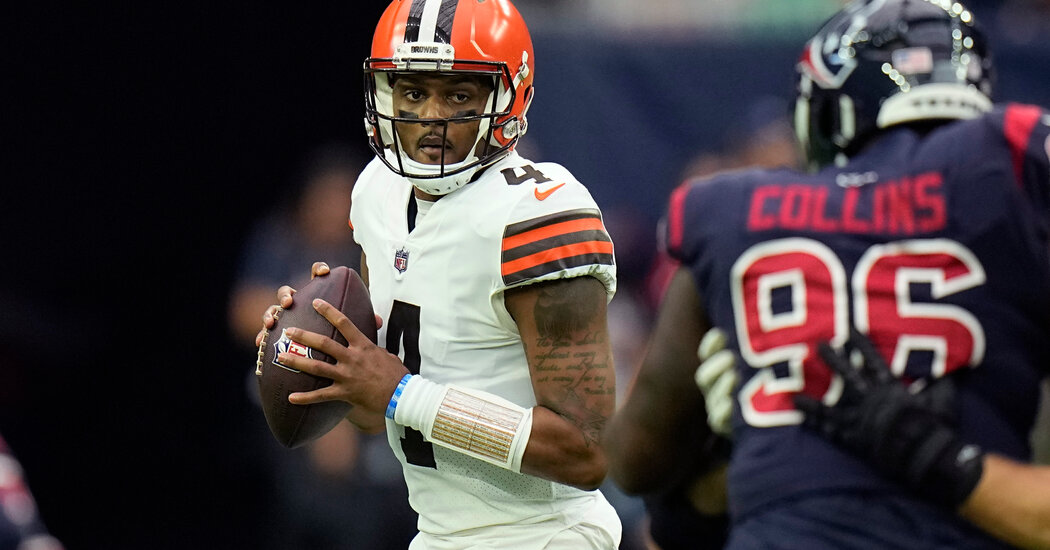
Watson’s return, and the coverage of it, comes as the N.F.L. is under intense scrutiny for its treatment of women. The Washington Commanders are the subject of at least six open investigations into widespread sexual harassment and abuse in the organization, and this spring six attorneys general warned the N.F.L.’s head office to improve how it treats female employees.
Brian McCarthy, a league spokesman, said the N.F.L. provided “no direction” to its network partners, including NFL Network, on how to cover Watson’s return. Much of the coverage mirrored how the N.F.L., the Browns, the Texans and Watson himself wanted football fans to think about it: As a turning of the page, moving on from the serious accusations made against Watson to his new role as the Browns’ franchise quarterback. When NFL Network insider Ian Rapoport reported last week that Watson was being reinstated, he concluded, “So that means it is officially over.”
Yet much about Watson’s situation remains unresolved. He still faces two lawsuits accusing him of lewd and coercive behavior in massage appointments, after settling 23 others this summer; he must continue to comply with the treatment program that was a condition of his reinstatement from his suspension; and the last time he directly addressed the accusations against him, in August, he insisted he was innocent and said the public hasn’t been interested in his side of the story.
While each network covered the occasion differently, they had much in common in what they left out. Other than an ESPN “Outside the Lines” segment that aired last week, it appeared that none of the key networks used footage during N.F.L. programming from either of the two news conferences given by Ashley Solis, the first licensed massage therapist to publicly accuse Watson of sexual misconduct. Also notably missing was mention that the Texans, the Browns’ opponent on Sunday, reached settlements with 30 of Watson’s accusers after The Times reported that the team had provided the venue for some of the appointments as well as a nondisclosure agreement that Watson gave to some of the women. Nor did the coverage detail the finding by the retired judge who oversaw Watson’s N.F.L. disciplinary hearing that Watson had engaged in “predatory” conduct that was “more egregious than any before reviewed by the N.F.L.”
Eliding the details of the accusations, especially on the day Watson returned from a suspension arising from them, can “render what has happened less serious,” said Meenakshi Gigi Durham, a journalism professor at the University of Iowa.
“It is critically important the way the media cover the story, and also the way that the institution itself, the N.F.L., the way they’re dealing with it,” said Durham, author of the book “MeToo: The Impact of Rape Culture in the Media.” She added, “Because the broader message that’s being sent about sexual assault and sexual violence in general sort of hinges on the way that it’s handled in public discourse.”
Watson made clear in the days before his return that he would not address the controversy directly. In his first news conference after being reinstated, he said that he had been instructed by his clinical and legal advisers only to answer football-related questions. The Browns’ official channels, including the team website and the team-sponsored radio show with Coach Kevin Stefanski also stuck to football, referring to Watson’s suspension without any mention of why he was disciplined.